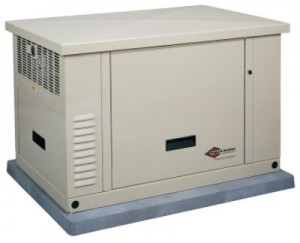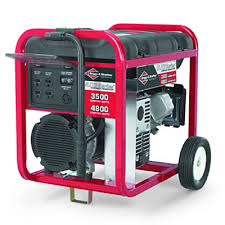You are home after a long day of shopping in the summer, where you bought ten pounds of food that needs to be frozen. As soon as you get into bed the power goes out, what do you do? Generators are a great back-up in case of a power outage that goes without saying, but which is the right generator for you? There are two different types of generators standby or stationary generators and portable generators both provide a back-up energy source, but there are some differences. Here are the major differences between portable generators and standby generators.
Standby Generators

When your home loses power a standby home generator will start up automatically providing back-up energy for a multitude of appliances. These generators are often larger than portable generators and are hard wired into a natural gas or propane line that usually runs through your home. Some key things to look for when you are purchasing a standby generator are; standby generators are large pieces of equipment and need to have an automatic
shutoff switch to make sure the generator doesn’t overheat or lose oil pressure. Keeping a regular testing cycle for your standby generator will give the owner the opportunity to find a potential problem with the generator before it is too late. With standby generators, because they are big pieces of technology, they can get very loud if there is no noise canceling technology installed in the machine. Make sure that the standby generator follows all emission & pollution regulations
.
Portable Generators

When your home loses power you can pull out a portable generator, this is great when you need an emergency energy supply for a few products for a shorter period of time. These portable generators are smaller & less powerful than standby generators; however they are also less expensive. Another major difference between portable generators & standby generators is that portable generators are started manually, usually with a recoil or battery powered ignition system. Portable generators typically have a built in fuel tank (either gas or propane) and extension cords that allow for easy plug-in to any wall unit. When purchasing a portable generator some important things to look for are; a large fuel tank, the larger the fuel tanks the more power the generator has to distribute. Make sure that the portable generator is actually portable; some of these generators don’t come with wheels or a handle making them hard to move. There should be instructions on how to start-up the generator, because it is usually a more intricate process than most people think.
Whichever generator you decide to use, make sure that it is installed by a professional. If you have any trouble starting or using a portable generator or need a standby generator to be installed please contact Cardoso Electrical Services at 781-246-7700.
